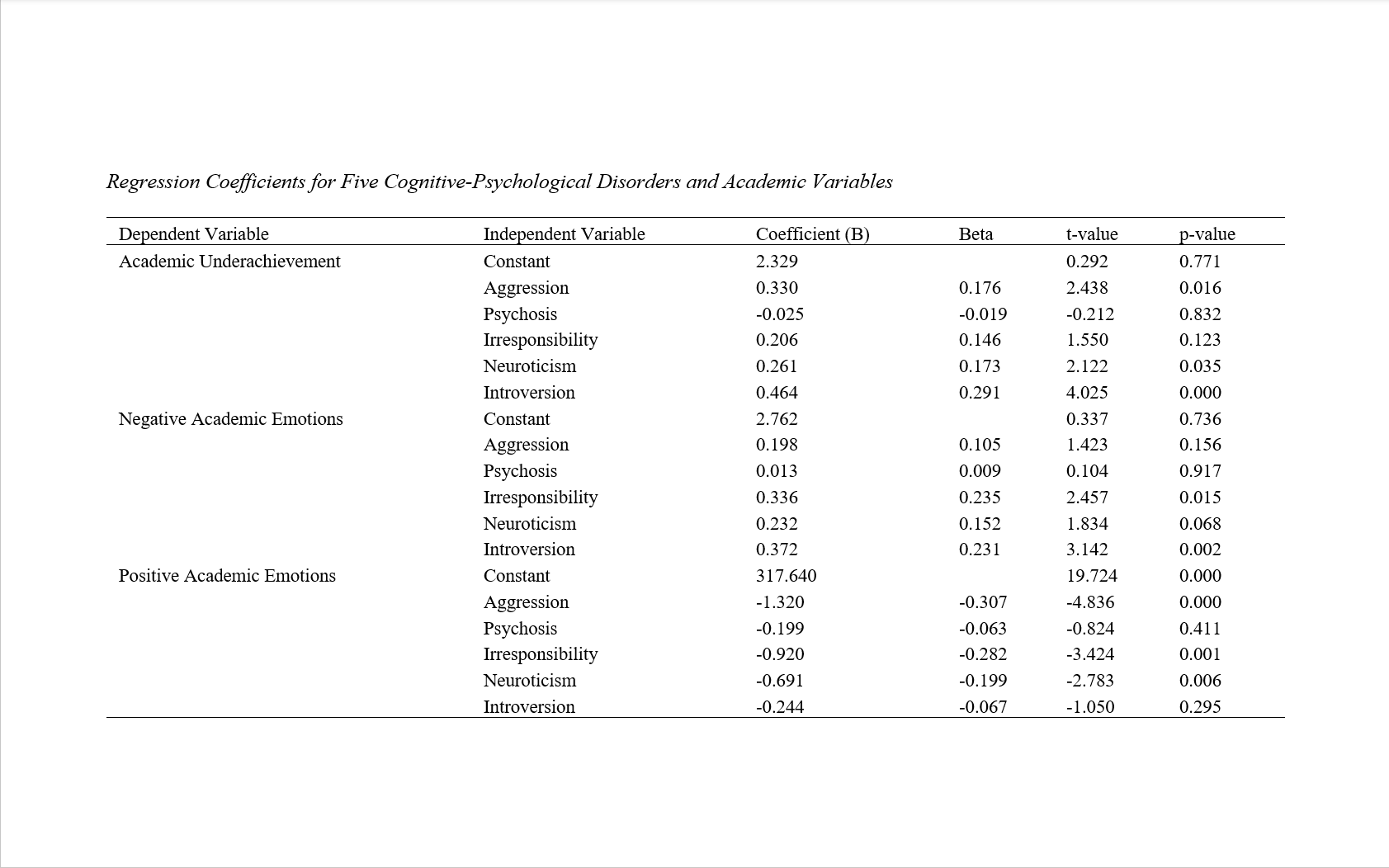The Relationship Between Intelligence Profile and Personality Profile with Academic Underachievement and Academic Emotions in Male High School Students
Keywords:
intelligence profile, personality profile, academic failure, academic emotionsAbstract
Objective: The present study investigates the relationship between intelligence profile and personality profile with academic underachievement and academic emotions.
Methods and Materials: This descriptive study employs a correlational design. Data collection tools included the new version of the Tehran-Stanford-Binet Intelligence Scale (revised form), the Minnesota Multiphasic Personality Inventory for Adolescents (MMPI-A), the Academic Underachievement Scale by Mousavi (2015), and the Academic Emotions Questionnaire by Pekrun et al. (2002). Data were collected from 180 male high school students from District 17 of Tehran (60 students from the 10th grade, 60 students from the 11th grade, and 60 students from the 12th grade). To examine the relationship between students' intelligence and personality profiles with academic underachievement and academic emotions, descriptive statistical tables were first used to describe the variables related to personality profile, intelligence profile, academic underachievement, and academic emotions. Measures of central tendency, including mode, median, and mean, as well as measures of dispersion, such as range, standard deviation, skewness, and kurtosis, were calculated. Subsequently, inferential statistical analysis using a multiple regression model was employed to test the research hypotheses. Data processing and analysis were conducted using SPSS software, version 26.
Findings: The findings of the multiple regression statistical model indicated a significant relationship between the intelligence profile and both academic underachievement and academic emotions among male high school students in District 17 of Tehran. Similarly, a significant relationship was found between the personality profile and both academic underachievement and academic emotions in the same population.
Conclusion: This study highlights the critical impact of psychological, behavioral, and interpersonal factors on academic performance and emotions, emphasizing the need for targeted interventions to support student well-being and success.
Downloads

Downloads
Additional Files
Published
Submitted
Revised
Accepted
Issue
Section
License
Copyright (c) 2025 Hossein Masoumi (Author); Firoz Kiyoumarsi (Corresponding Author)

This work is licensed under a Creative Commons Attribution-NonCommercial 4.0 International License.








